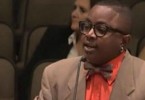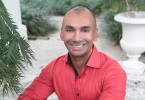Much of the progress in LGBT rights in the past decade has come from the tireless efforts of lawyers like Elizabeth Schwartz. She is one of Florida’s most well-known legal advocates for the LGBT community, having participated in a number of important cases helping same-sex couples with adoption, divorce, and surrogacy.
Schwartz was spotlighted in our round-up of Florida’s 100 brightest LGBT community members last year, and we recently had the opportunity to discuss her career achievements and her outlook on the current issues facing the LGBT community.
Berkley: With marriage equality a done deal, what do you feel is currently the most pressing concern for the future of LGBT equality?
Schwartz: Marriage was a giant leap forward but certainly is no cure-all. It’s not like a switch was flipped and suddenly all is good for everyone; many in our community are still very much vulnerable. I’m particularly concerned about those on our outer margins whether because of socioeconomic status or for some other reason. do not feel embraced by the mainstream gay community –like our trans family, people of color, queer youth and older adults. We have a lot to do to broaden the umbrella to provide protections for all.
Berkley: Are there any interesting LGBT-related cases you are working on now?
Schwartz: I’m working with NCLR on a lawsuit (Chin v Armstrong) to compel the State of Florida to issue birth certificates to LGBT married parents in the same way that they do for heterosexual couples.
Berkley: What brought you into the LGBT equality arena?
Schwartz: Well, as a queer woman, I guess I could call it self-interest! I want to make the world safer for us all. But the other truth is that I came up and out in a community of fierce and fabulous gay men, so watching the devastation of the AIDS pandemic pissed me off and has energized me to fight in honor of each one of their memories.
Berkley: You represented the first LGBT divorce in Florida; do you think there are differences in an LGBT divorce compared to a straight couple’s divorce? Do you have any general advice for newly engaged or married LGBT couples?
Schwartz: LGBT divorces can be more difficult because very often we have been together for years before we could actually marry, and some of the rights associated with marriage at divorce—like how things get divided and what support is paid—are based on the length of the marriage. A well-drafted pre-nup can actually make a fairer result on divorce.
Berkley: What made you interested in helping LGBT couples with surrogacy and what advice do you offer couples seeking such an avenue?
Schwartz: When I started doing family formation for LGBT couples in the late 90s, we had a ban on gay people adopting so the main way gay men could become parents in Florida was to do surrogacy. I’ve worked to increase protections and smooth the legal process for gay dads in Florida, and it’s much easier now than it had been. My three bits of advice for couples wanting to do surrogacy are: save up because it’s not cheap, do gestational surrogacy not traditional surrogacy, and use an agency—don’t try DIY!




